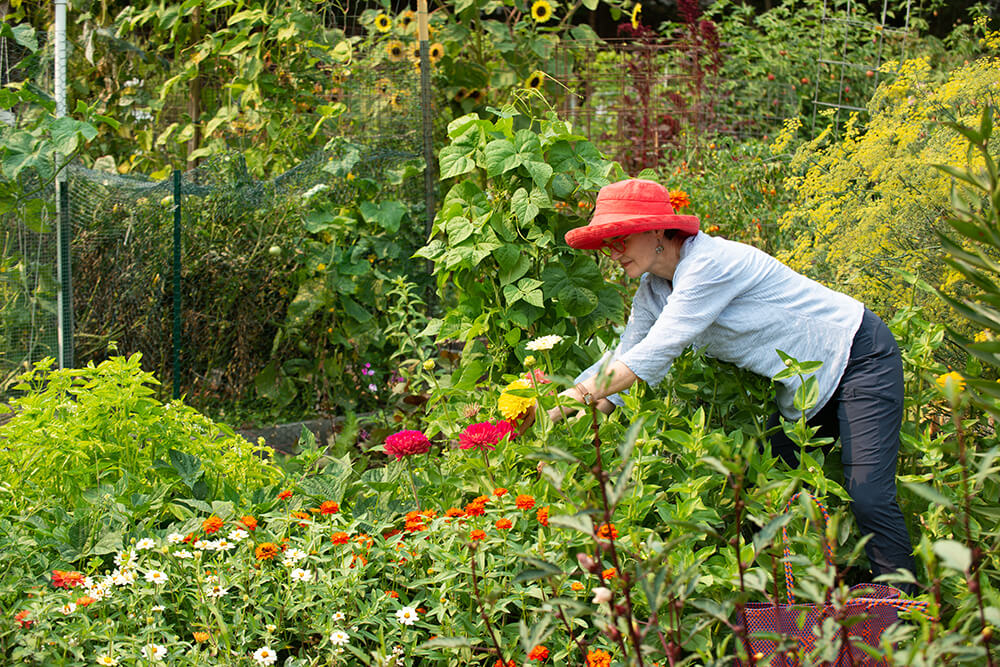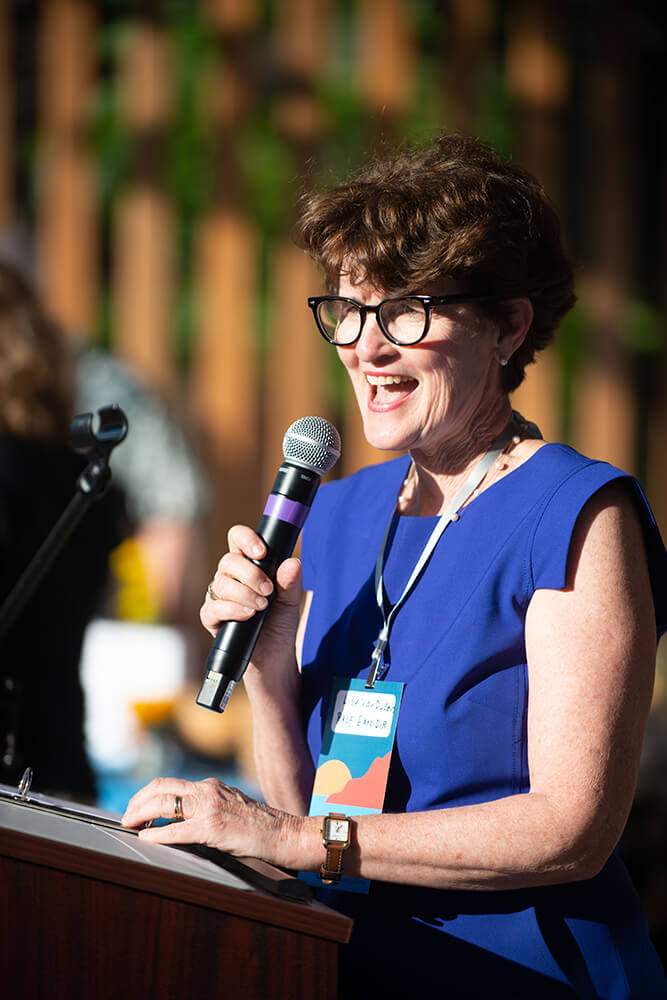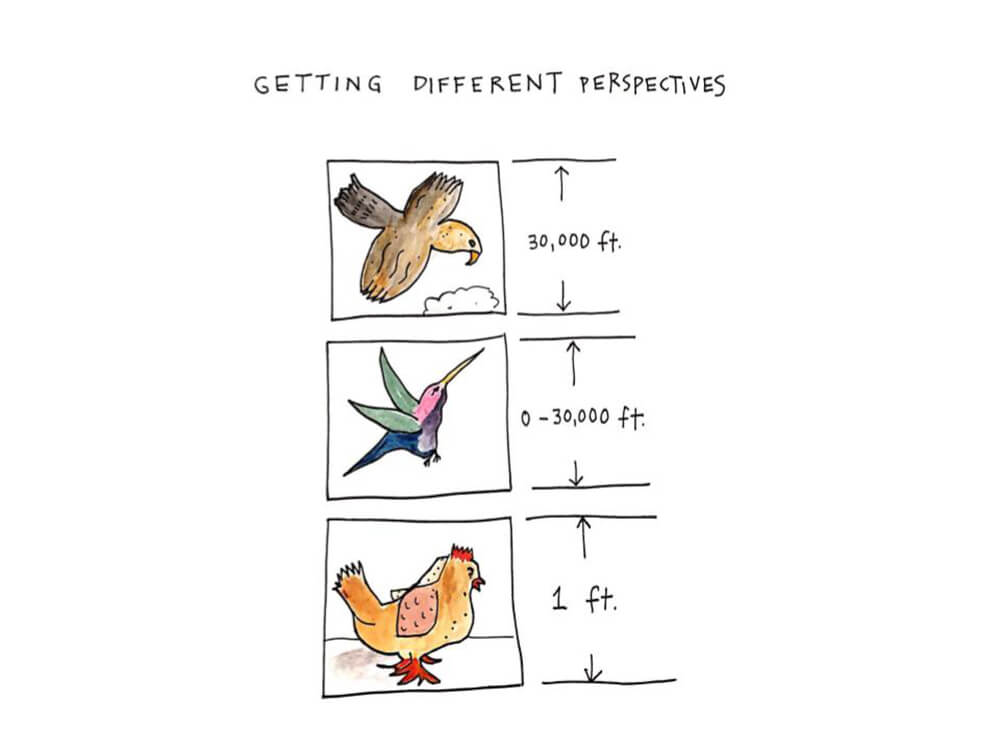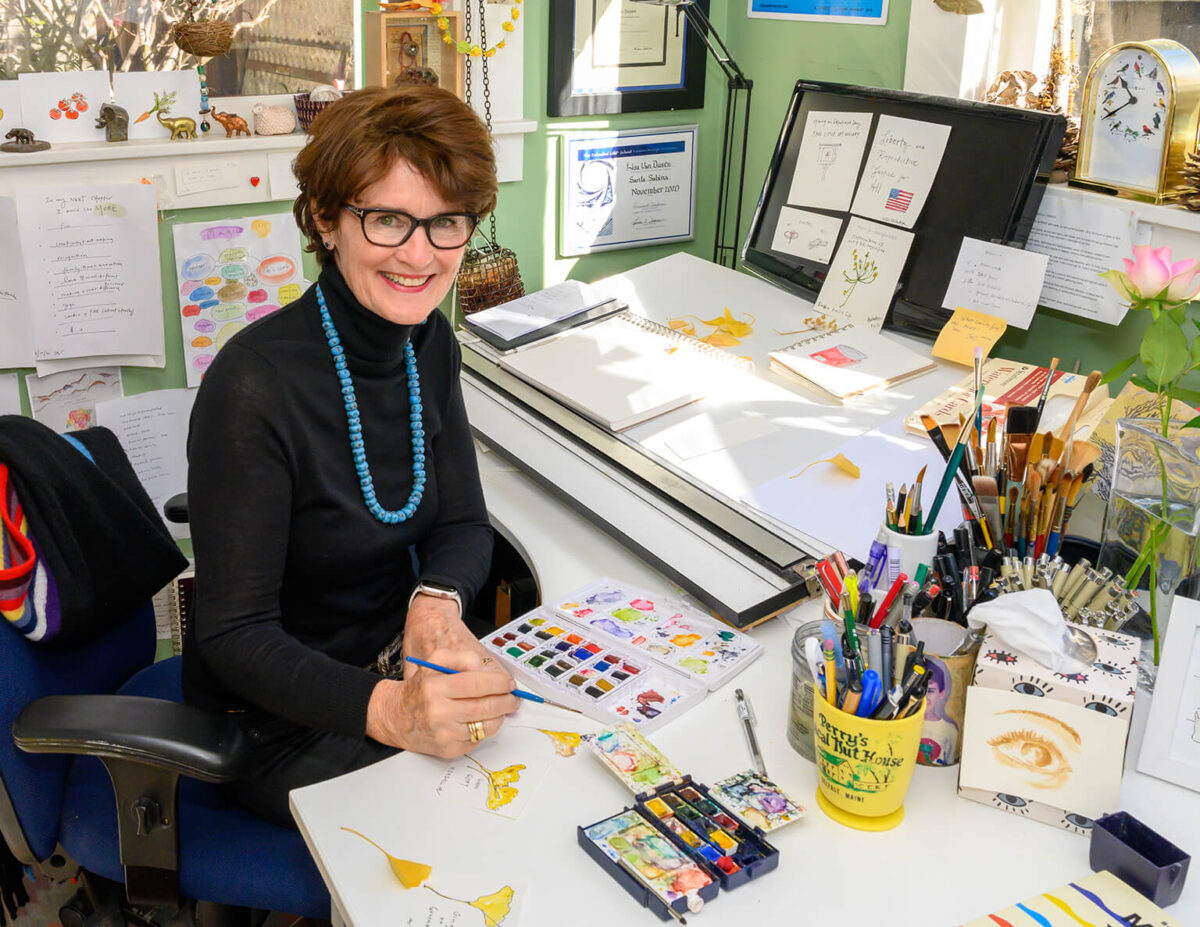Words by Sharon McDonnell
Lisa Van Dusen defies easy categorization. A social change agent and civic leader for decades, she’s also an executive/leadership coach, an SV2-Silicon Valley Social Venture Fund partner as well as a lifelong practicing artist. After moving to Palo Alto in the mid-’80s, Lisa launched Palo Alto Online for Palo Alto Weekly, the first newspaper in the world to publish its entire contents on the web in the early 1990s, and hosted its First Person video interview series, spotlighting local social innovators, frequently before their influence was widely recognized.
Currently, as executive director of the Palo Alto Community Fund, Lisa works to narrow the inequality gap between the haves and the have-nots in our local communities. Her eclectic accomplishments haven’t gone unnoticed. Among other honors, she was named a Woman of Influence by the Silicon Valley Business Journal.
When I see ‘occupation’ on a form, it still makes me shudder,” she says. “There was never a box for me. I always checked ‘Other.’” Initially viewing that as a weakness, over time, she came to see it as a strength and an ability. Out of that realization came “The Joys of Otherhood,” Lisa’s TEDx talk espousing the benefits of embracing different disciplines, skills and experiences.

“To work on the big challenges and problems in our world, we can’t operate in silos—we need people, like me, to cross-pollinate and weave the parts together,” observes Lisa, who also serves on the board of an NGO and as an advisor to a venture fund that invests in women-led startups. Proud to always be a square peg in a round hole, Lisa, who doesn’t accept givens and whose worldview is a breath of fresh air, offers a dose of inspiration and motivation as we kick off a new year.
Malcolm Gladwell says of “connectors” in his book The Tipping Point, “By having a foot in so many different worlds, they have the effect of bringing them all together.” The word fits you to a T.
I naturally collect and connect a wide range of people, resources, organizations and ideas. I try to be human glue, be a finder, connect the dots.
Given the January time frame, what are your tips on a reset or reinvention?
Do more of what you love, and see how to integrate that into the rest of your life. My ‘walking meetings’ are an example: If someone says, ‘Let’s have coffee,’ I say, ‘How about a walk?’ Wish big. We often have a failure of imagination. We don’t let ourselves nurture our dreams. Taking small steps to reach something big is OK—think, ‘What’s the next step?’ Plant seeds and see what grows. What you give attention to really grows.

What are some practices that sustain you?
In the morning, I try to meditate, draw, write and exercise. Making art—for a wide range of outlets—everything from cards for friends to film and book illustrations. I have a Free Little Art Gallery in front of my house, where people can contribute, take or just enjoy art, including my own. Hiking—we are so fortunate to live on the Peninsula. Foothills Park in Palo Alto and the Hamms Gulch Trail on Windy Hill are two favorites. Gardening—my husband and I have a plot in the community garden at Eleanor Pardee Park. I also believe in the ‘joy of others’—I meet and talk to people every day, wherever I am. I get so much out of conversations with people I wouldn’t normally cross paths with.
In your TEDx talk called “The Joys of Otherhood,” you tell a wonderful anecdote about how when you were 10, your teacher assigned both a science project and an English project. But you combined them both, to resounding success. It seems to foreshadow your later life—can you explain?
I wanted to create a play about the Scopes trial, where Darwin’s theory of evolution was challenged, instead. The teacher said yes, so I recruited students from different grades to be part of it, and I cast myself as a reporter so I could use my reporter’s notebook as a prompter because I had a hard time memorizing my lines. So in many ways, that experience was a revelation and a high point of my childhood. I could combine my various interests into one project, and I didn’t need or even want to do it by myself. I’m still not good at memorization—but it’s worked for me. In fact, I’ve been happily doing improv classes and workshops for more than 25 years.

Does your life have any operating principles?
My lens in the world is both broad and narrow. There’s a hawk view, seeing things from 30,000 feet up; a chicken view, seeing things on the ground; and a hummingbird view, where I spend most of my time, traveling between elevations and different perspectives. I’m high-touch, playful and straightforward. Humor is big for me—as in taking my work seriously but not myself. I see the elephant in the room. If people say something I know isn’t true, I feel compelled to call it out.
Is there a book that particularly inspired you?
Uncommon Genius: How Ideas Are Born. It’s interviews with 40 MacArthur “genius” award winners is a window into people’s life paths that weren’t traditional paths, the breadcrumb trail.
Do you have a motto?
Carpe diem! I also love Margaret Mead’s quote, ‘Never doubt that a small group of thoughtful committed citizens can change the world: indeed it’s the only thing that ever has.’


